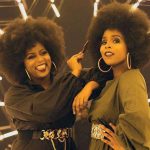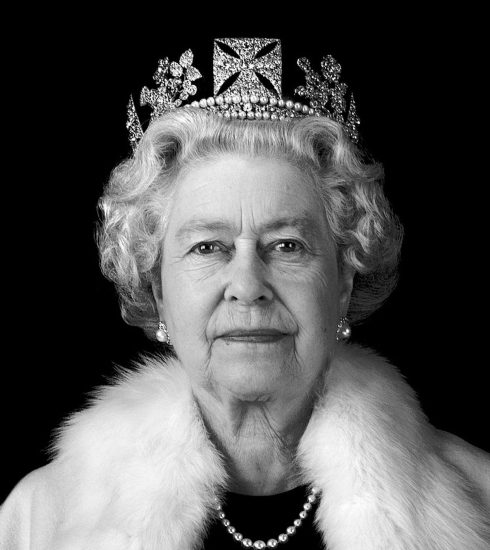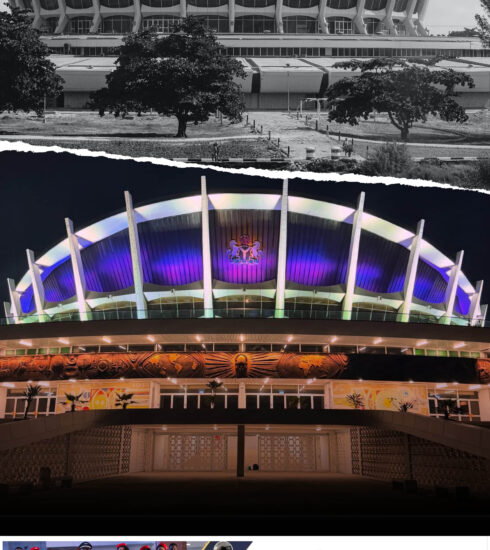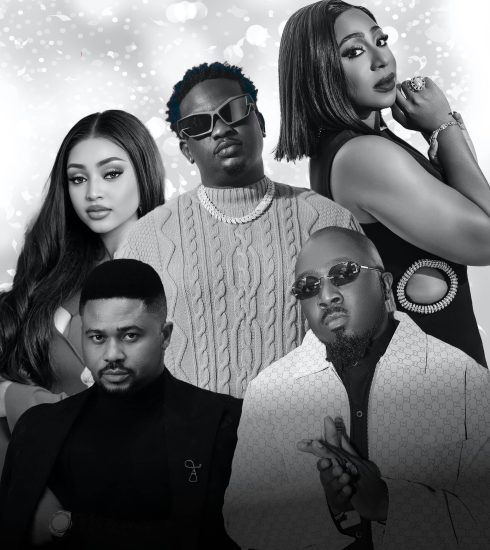Olumide Akpata – Challenging The Status Quo
The desire to achieve the seemingly unattainable is encoded in the mind of every human being but the will to work towards the realization of those wants isn’t. Many believe things would just happen, so they don’t fret but some understand that life is a game of chess- every move has to be deliberate and intentional. One of such intentional goal-setters is Olumide Akpata, a very successful commercial lawyer and President of the Nigerian Bar Association (NBA), the largest body of lawyers in Africa. He sits down with Downtown’s Chisom Njoku to discuss life, leadership, and the law.
Give us some insight into your person. Who is Olumide Akpata?
I’m Olumide Akpata, a lawyer with close to thirty years of experience, I’m down to earth and I’m a straightforward person and I try to avoid complexity. Today I’m a senior partner in a law firm called Templars and I’m also President of the Nigerian Bar Association.
What was your early life like, where did you grow up?
Although I was born in Germany, I’m a quintessential Warri boy. I did all my schooling in Warri, up until secondary school when I was admitted to King’s College in Lagos, then to the University of Benin after which I was called to the Nigerian Bar, requiring me to be in Lagos for Law School.
What sparked your interest in Law?
My father was a medical doctor and [although he hoped I would be a doctor too], he encouraged me to study something professional. After looking through my results that term, he felt I was more art inclined and advised me to study Law. I’m eternally grateful to my father because being a lawyer gives you certain advantages, firstly it gives you the power of analysis and helps you to navigate various issues.
You’re presently at the peak of your career but what was the driving force that got you here?
It has a lot to do with upbringing and the schools I went to. I come from a results-oriented and driven family so failure is not an option and you are propelled and encouraged to succeed. When I joined my cousin’s then-new law firm, I was about 23 years old and the odds were very daunting because we were young kids against professional giants but because failure was not an option, we had to be imaginative and ply the road less traveled. Today, over 25 years later, our law firm is still standing with an excess of a hundred lawyers. I would say the driving force was playing fair but aiming to win.
Are you the first non-SAN president of the Nigerian Bar Association?
The NBA has existed before the rank of senior advocate so there has definitely been a number of non-SAN presidents in the association but in recent memory, from 1988 till my election in 2020[32 years], we’ve only had senior advocates as presidents so I’m the first non-SAN president in a very long time.
Although you aren’t a SAN, a lot of Senior Advocates rallied around you during the elections. What do you think was the reason for that?
Firstly I’ve been around for a while and an active member of the association so even though quite a number of the senior advocates supported their colleagues, others saw that it was not about rank or title, it was about who has the track record and can deliver the goods. And even though it was a tough decision for many, they chose to go against popular opinion and vote for me because they knew I would do what was best for the association.
What was a major gap you noticed that made you vie for the presidency of the Nigerian Bar Association?
It was the lack of capacity. The legal profession is around 150 years old in Nigeria but we were playing way below our weight class and although the Nigerian economy is the largest in Africa, the profession is not able to service the economy because of the way the profession is structured. Most people only think of Law from the angle of dispute resolution to the detriment of other parts of the profession and I saw that gap. We’re operating in the largest economy on the continent, it can’t only be all about dispute resolution but that’s the tone from the top of the profession. Now we’re churning out about six thousand lawyers and there aren’t enough disputes to go round so there’s a need to diversify. The NBA which should’ve been championing diversification and cresting new areas of practice was not doing enough and that was what propelled me.
A Twitter user made a comment about her studying Law in a lawless country, how do you feel lawyers can do better in the pursuit of justice here in Nigeria?
Our motto is “promoting the rule of law” and for us to be true to our mandate, our main focus has to be upholding the rule of law because that’s our job as lawyers, we are the watchdogs in Africa. Recently we sued the Federal Government for extending the tenure of the inspector general of police by three months and we did that because its a rule of law issue and the point was to hold leaders accountable. When the public see that their leaders have no regard for the rule of law, they would do the same thing because people take cues from their leaders. If we don’t nip it in the bud, it becomes the norm and everyone does what they like so regarding this tweet, we need to prevent the situation where we become a lawless country.
What were the challenges you didn’t anticipate during the contest for the position of the president that you’re currently tackling?
Honestly, people are very demanding, public office is not a tea party. You get into office and people want to see, hear, and talk to you and it’s not out of place to get a call at six in the morning and the caller says ‘Mr. President, good morning, just wanted to hear your voice” and that’s to be expected because you’re a public officer [within the confines of an organization]. It’s tough because you want to do your own thing but the reality is you don’t own your time anymore. Apart from that, there’s also capacity issues [a-lot to be done] and finding the right people to come and do the work is also tough but we’re doing it and showing people that we mean well and we have the best interest of the association at hand.
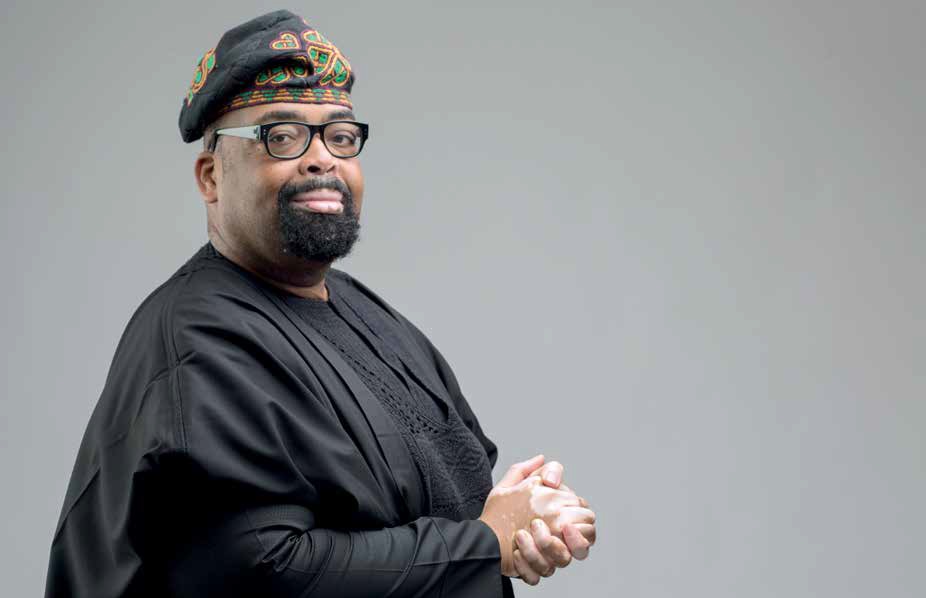
The NBA is tasked with the protection & promotion of human rights, what is the long-term plan to curb human rights violations in Nigeria?
We have the NBA Human Rights Institute but unfortunately its almost redundant so I intend to re-invigorate the institute because it’s supposed to be an academy where we train lawyers and non-lawyers so people can know what their rights are and also train operators of government institutions, government organizations and collaborate with various human rights commissions. Unfortunately, policemen don’t receive training in human rights so they don’t even know that they’re infringing on your rights and so definitely the NBA needs to do more. This is why those before us set up the human rights institute because it’s supposed to help with advocacy and awareness and if you’re able to inform people, the problem is half solved as ignorance is a major issue. Then playing the watchdog role, the NBA and other organizations hold the people in power accountable so they know they are being monitored and that helps to put them on the straight and narrow. Although we [NBA] don’t have a silver bullet [magic solution], we’re going to do the things that we ought to do which include sensitization, advocacy, playing the watchdog role, calling out those who are abusing human rights, and defending the defenseless.
If you could change one thing about Nigerian society as a whole, what would that be?
If I could change one thing, it would be leadership. And when I say leadership I don’t mean only in terms of the president. My problem with leadership today is the lack of accountability and the fact that they don’t seem to understand they serve at the pleasure of the people and it is the job of leaders to light the way. It doesn’t fix all the problems but if you change the mindset of those who are leading, you’ll have the problem almost sorted out then leadership will bring about re-orientation of followers because they’ve been conditioned a certain way. Aspiring leaders also need to understand that it’s a service, it’s not supposed to be self-serving and they’re there to do good by the people.
On a lighter note, how do you de-stress after a long work week?
I love to party, I’m a very active social animal [laughs], I hang out with my friends and although I don’t play golf yet I intend to pick it up very soon as I get older, I also love to travel but 2020 was a tough year and it put a pause on a lot of things. There aren’t a lot of outlets for de-stressing now, nothing to do, nowhere to go and that underlying feeling of uncertainty but when I can, I still travel and see friends. Sometimes I just shut down totally and watch a cartoon or watch a comedy to relax.
Very little is known about your personal life, kindly give us some insight into what your family is like?
I’ve not yet married so the family unit I have right now consists of just my sisters and my father.
What was dating like for you pre-Covid? Are you a romantic?
I’m not dating, I’m in a steady relationship, it’s just that we haven’t done the needful. Unfortunately, I’m not a romantic person but she holds it down for the both of us.
What’s a hidden talent that many people might not know you have?
I’m a good dancer, although people know that already. I could also easily be a comedian. I hang out with comedians a lot and I love their work especially Alibaba, Bovi, I go die, Mc Abbey, they’re all my friends.
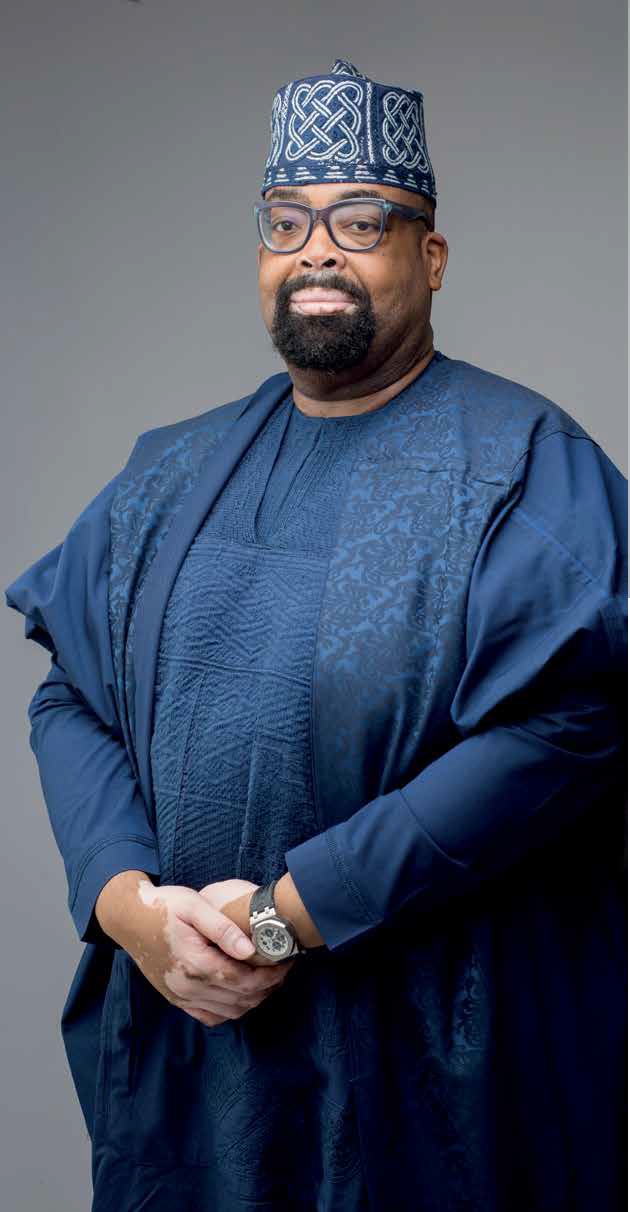 Walk me through an average day in the life of an NBA president?
Walk me through an average day in the life of an NBA president?
It’s a lot, there’s always so much to do. On an average day I’m attending 3-4 events where I’m supposed to give a speech at each one so I have speechwriters helping me because, without them, it would be difficult to catch up. Then I have to do interviews as well in addition to running the organization itself. Today I got a call about a maintenance issue that needed attention and from that to dealing with NBA Calabar where there was a conference which I was meant to attend but due to a 5-hour flight delay, I had to make a virtual appearance. I was in Jigawa on Monday morning, I’ll be in Abuja tomorrow for a meeting and then Kaduna on Sunday. There are 125 branches of the association so it’s a lot to handle.
Do you still hang out with the regular folks at Templars?
I had to take a leave of absence from work at Templars because I knew it wouldn’t be possible to do this part-time and that’s unfortunate because by design it should be part-time. Unfortunately, we haven’t built capacity to the point where one can balance personal engagements and the association’s responsibilities. Thankfully I belong to a big law firm so they could afford to let me go and I’m trying to put a system in place so that whoever comes after me finds it easier.
You were once very interested in business, have you ever paused to imagine what your life would be like if you pursued that career path?
I haven’t really given it much thought but just because of the kind of person I am and my values, I think I would’ve made a success of it. But the good thing is I’m still a businessman at the end of the day because I run my practice which in itself is a business so I’m living the best of both worlds.


